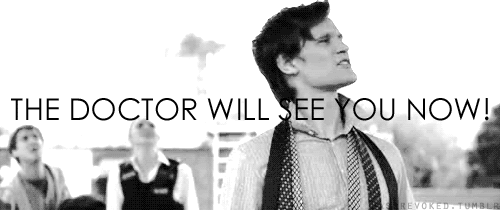A look into the pack we were given today at the conference.
Stardate: 92305.32
Prepare for a long post...
I have to admit it, I am knackered. Due to a 5.20AM start to get a train at 6.34AM to Middlesbrough, and getting home at 7.40PM, I have had one heck of a long day, but I think it has definitely been worth my time. I don't know many undergrad students who attend conferences, but I certainly think that we should. I met so many new people, gained a lot of information from qualified radiographers, their views and advice, and I also learnt a good deal about the new and upcoming future developments in radiography (mainly forensic imaging). It's definitely motivated me to attend more conferences in the future!
The morning started with a talk from Her Majesty's Senior Coroner in Sunderland, Derek Winter, who spoke about the role of a coroner and the role of post-mortem CT. For those of you who are unsure, a coroner is an independent judicial office holder appointed by a local authority, that investigates deaths that have been reported to them, if they have reason to suspect the death was violent or unnatural, has an unknown cause, or the deceased died in prison, police custody or another type of state detention (Ministry of Justice, 2013). His presentation explained that CT imaging is considered to be one possible way to reduce the number of autopsies in Britain, which is 2-3 times the rate of comparable countries. Post-mortem CT (PMCT) is also more cost-effective than an autopsy, but is a developing field, and has certain limitations. Certain faith groups are keen to avoid autopsy, as are bereaving families, in these cases CT virtual autopsies would be favourable.
Our next talk was then on Multi-Phase Post-mortem CT Angiography, which has been a major research project at the University Centre of Legal Medicine in Lausanne-Geneva. This presentation informed us of courses available to radiographers, as well as the current developments and benefits of MPMCT Angiography. In Lausanne, the forensic radiographers carry out examinations and cases themselves, including incisions and cannulations, which usually requires training, but gives these radiographers more autonomy in their practice.
After a well-needed coffee break (I was beginning to nod off from being tired!), the subject turned to Non-Accidental Injury and Physical Abuse cases in children. I had the chance to actually meet one of the speakers (Dr. Amaka C Offiah) prior to her talk, as I took the same train as her from Darlington to Middlesbrough, and we also shared a taxi. A national expert in radiological research into child abuse, and the first woman to be appointed as the Royal College of Radiology Roentgen Professor, she is well-known within her field and her talk was excellent and incredibly informative about the pitfalls in radiological diagnosis of physical abuse in children. Her presentation highlighted many key areas within this subject, and how to avoid future issues from arising within departments.
Our final talk was on ballistics, which highlighted and identified different bullet types, gun 'anatomy', trajectory and basic witness statements on forensic radiography ballistics. It was quite an interactive and entertaining way to end the day!
The members of the IAFR (International Association of Forensic Radiographers) were all very welcoming, and happy to answer questions, and I also got to speak to a few recent graduates of the Masters course at Teeside.
Overall, I thoroughly enjoyed my day, gained a CPD (Continuing Professional Development) certificate, and got to speak to the Forensic Radiography Masters course co-ordinator, who re-assured me about the content, and applications process.
For anyone interested, I've posted a link to the IAFR website for you to have a look at :3
An added bonus: I even managed to watch Doctor Who without nodding off. So now, I'm off to read my Stephen King book until I fall asleep! I'm too tired to pay attention to 'Once Upon a Time' tonight...
LLAP guys! Told you it would be long....
The IAFR website: http://afr.org.uk/
